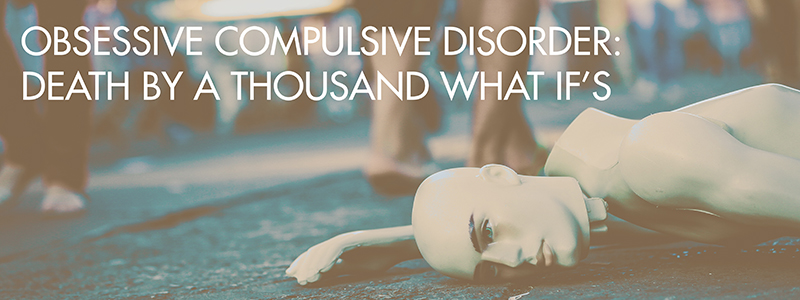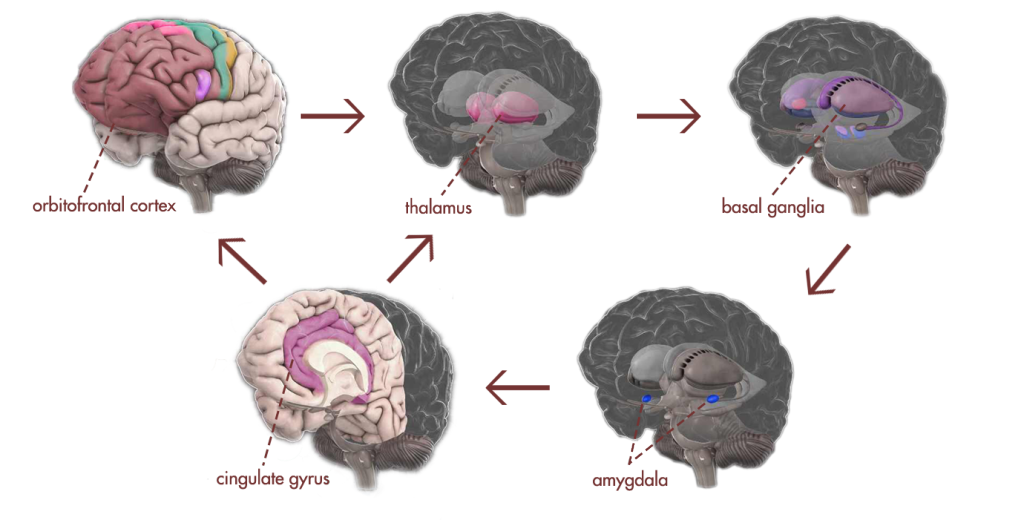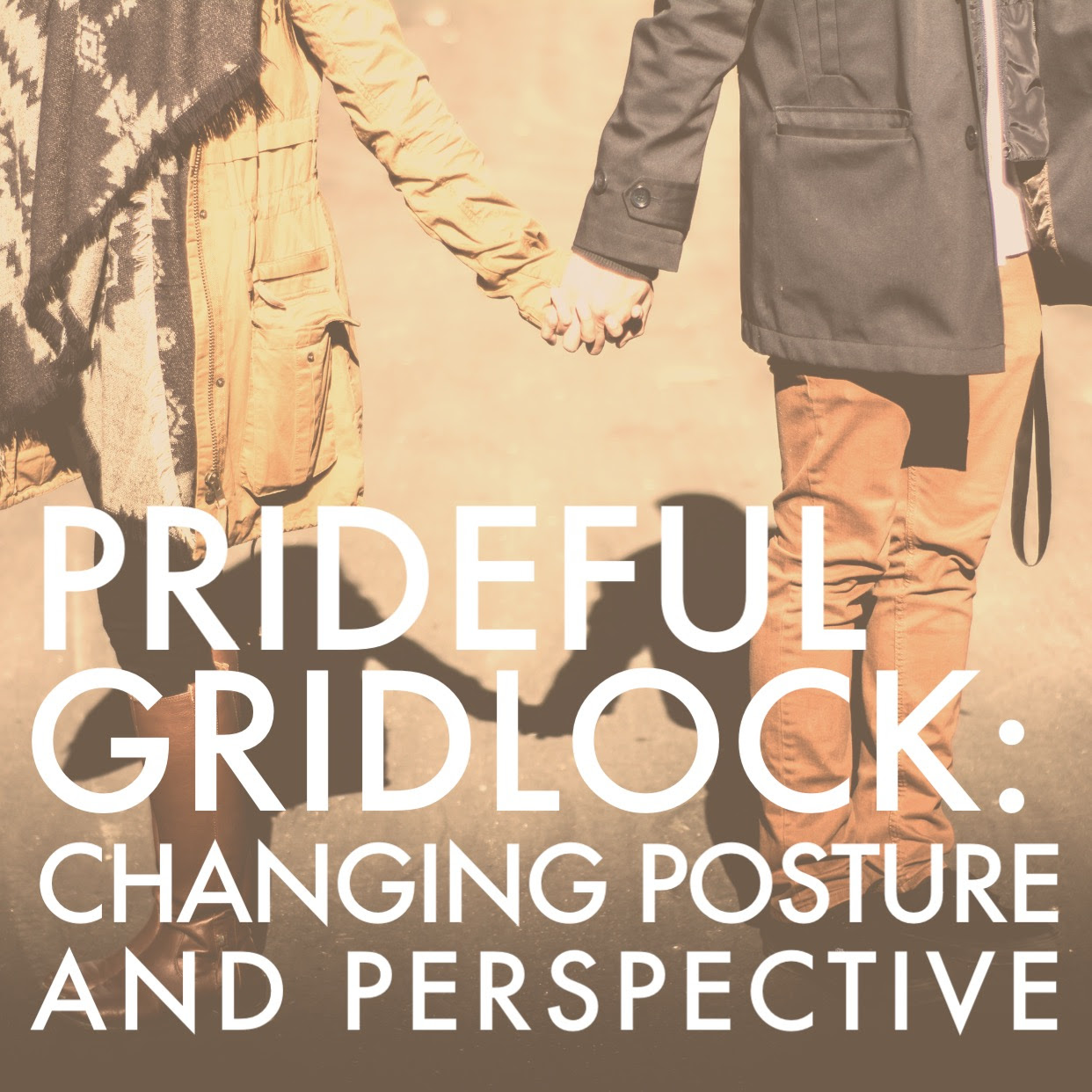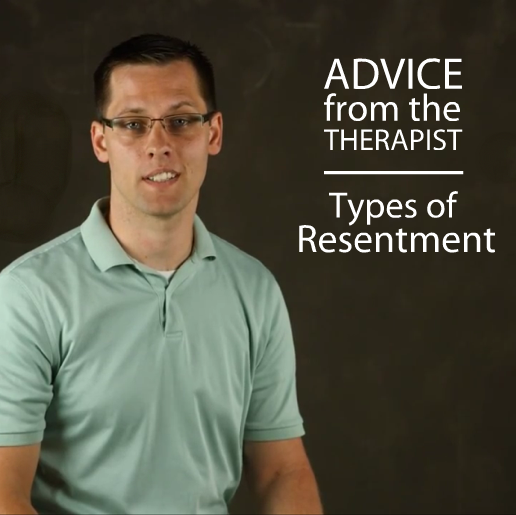
Obsessive Compulsive Disorder: Death By A Thousand What If’s
by Kristy Cobillas, MEd, PLPC
We have all heard someone claim that they have Obsessive Compulsive Disorder (OCD) because of their proclivity toward keeping things neat and organized. Many a joke has been made regarding having “OCD” friends over so that they can clean the house. Those truly suffering with the disorder could only wish it were simply a matter of being particular or neat; unfortunately that is not the case.
Exactly what is OCD?
Characterized by a presence of obsessions, compulsions or both, OCD is a lifelong, debilitating, and painful neuropsychobiological (brain and psychological) disorder affecting 2% of the population. Coming from the latin word obsessio, which means to “take over” or “besiege”, obsessions do just that, holding the sufferer captive to pervasive rumination and evoking negative emotions including fear and/or disgust.
Obsessions are intrusive, distressing, and unwanted pervasive thoughts, impulses, or images. Typical obsessions revolve around such ideas as: cleanliness, superstition (such as certain numbers are “bad”), order, contamination, unwanted sexual thoughts, concerns about offending God (scrupulosity) or others, worry that one will harm oneself or someone else (responsibility OCD) or what to throw away (hoarding).
Compulsions are repetitive thoughts or behaviors utilized in an attempt to ward off or neutralize the obsession. Typical compulsions include: counting, checking, washing, cleaning, putting things in order until they “feel right”, or praying. These life consuming activities can take hours or even days out of one’s life.
OCD is a chronic condition; one cannot just “stop it.” That is the bad news. The good news is, OCD can be treated and the symptoms can be greatly reduced through psychotherapy and medication, specifically SSRI’s.
Signs that you or someone you love may have OCD
A good thing to consider is whether you pervasively ask yourself “What if…?”
Everyone ruminates once in awhile about potential disaster, but for the OCD sufferer, the thoughts come one after the other and are unfounded and exaggerated. For example, most would say that they do not wish for their parents to die. This thought may cross one’s mind from time to time, however if one’s parents are relatively healthy, the thought fades into the background and life continues. For the OCD sufferer, the thought becomes consuming. Compulsions soon arise to help assure oneself that their parents are not going to die. They may call their parents repeatedly, insist that they go to the doctor, make sure that they are eating healthy foods, drive by their parents’ house, all with the impossible attempt to grasp some sort of control over the situation. The OCD sufferer is preoccupied with pursuing 100% certainty, because 98% certainty is not good enough. It doesn’t matter if there is truly no evidence supporting their fear. The “what if”s continue and become terrifying and life consuming. The sufferer is consumed with the idea of not knowing. Ironically, for the OCD sufferer, the idea of “what if I have cancer” is far more distressing than the actual knowledge that they have cancer. “What if” someone is angry with me is far more threatening than the knowledge that someone is actually angry.
What is happening in the brain?
 What is happening on a neuroanatomical level? Utilizing Functional MRIs as well as SPECT scans, researchers have produced a wealth of information regarding neural hyperactivity (rapid firing of neurons) in a specific loop in the brain for those who suffer with OCD. In the non-OCD brain, thoughts are produced in the orbital frontal cortex, and travel to the thalamus, a central station which sends information to the other cortical regions, including the basal ganglia. The basal ganglia, filters out excess thoughts and then sends electro-chemical impulses, which we interpret as thought, to the cingulate gyrus and the amygdala. The cingulate gyrus is essential in regulation of emotion and pain, as well as the task of transitioning from one though or activity to another. The amygdala generates neutral activity via the release of neurotransmitter, which we interpret as emotions and motivation. When working properly, threats are perceived as threats, benign issues are perceived as benign issues, and the thought is processed.
What is happening on a neuroanatomical level? Utilizing Functional MRIs as well as SPECT scans, researchers have produced a wealth of information regarding neural hyperactivity (rapid firing of neurons) in a specific loop in the brain for those who suffer with OCD. In the non-OCD brain, thoughts are produced in the orbital frontal cortex, and travel to the thalamus, a central station which sends information to the other cortical regions, including the basal ganglia. The basal ganglia, filters out excess thoughts and then sends electro-chemical impulses, which we interpret as thought, to the cingulate gyrus and the amygdala. The cingulate gyrus is essential in regulation of emotion and pain, as well as the task of transitioning from one though or activity to another. The amygdala generates neutral activity via the release of neurotransmitter, which we interpret as emotions and motivation. When working properly, threats are perceived as threats, benign issues are perceived as benign issues, and the thought is processed.
In the OCD brain, the thalamus becomes overly excited with its messages to the basal ganglia. The basal ganglia’s filtration becomes faulty and all sorts of thoughts come straight through without filtration. Further, the amygdala (the emotional center of the brain) is activated and the cingulate gyrus is hyperactive in the posterior, and hypoactive in the anterior, causing the thoughts to be sent through the cycle again. The result is that every thought appears to be of utter importance and rumination takes place. Levels of serotonin drop. Brain chemistry needs to be changed, as serotonin is a biochemical messenger associated with regulation of mood, aggression, and impulse among other things.
Tips for coping with OCD
- Recognize the thought as OCD, and not a thought of reality. Statements that start with “what if” are most likely an OCD thought. Call it out for what it is.
- Remind yourself that the urge to compulse is only going to strengthen the neural pathway loop, and it will not bring reassurance.
- Distract yourself with something else. If the urge is ignored, it will quiet down.
- Understand that feelings do not define reality, they can only, at best, reflect perceived reality. Feelings can also reflect a neurological imbalance or a cognitive distortion. Truth is not based on feelings; truth stands alone. (For the believer, truth is in Christ!)
- Find help! Seek out a therapist who is familiar with OCD and can walk alongside you through the process.
OCD is a complex disorder and one that requires a multifactorial approach which processes behaviors, emotions, cognitions, social interactions, spiritual ideas, relationships, family of origin ideas and behaviors, the impact of history, and finally, how biochemistry plays a role in the disorder. The answer is not in safeguarding oneself against every possible destruction that could occur. The answer is in understanding the truth of what is happening and living accordingly.
God Bless you as you seek to find peace in the truth.
 About the Author
About the Author
Kristy Cobillas, PLPC at Agape Christian Counseling, has been married for 25 years to her husband Tim, and is co-founder of The Joshua House, a non-denominational church community and 501c3 organization. Click on the picture to the left to read her bio.
References
http://ocd.stanford.edu/about/understanding.html
http://www.bbc.co.uk/science/humanbody/mind/articles/disorders/causesofocd.shtml






One Comment
Tex H
I appreciate what you said about how OCD brains get over excited because of the basal ganglia. I need to get a doctor to check out my little brother. I think he has been exhibiting compulsive behavior.